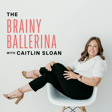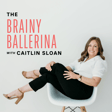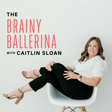
48. Navigating the Freelance LA Dance Scene with Mizuki Sako
In this episode I’m joined by Mizuki Sako, a professional dancer whose career spans ballet, contemporary, commercial work, and film performing with LA-based companies including the REALM company, LA Dance Moves, Psychopomp Dance Theater and Disneyland.
Mizuki shares her experiences navigating the professional freelance dance world and finding artistic fulfillment across different styles and mediums. If you’re a dancer wondering how to build a career beyond traditional ballet company contracts, this episode is for you!
Key points:
✨How Mizuki transitioned from ballet training to a multi-genre dance career
✨The challenges and rewards of freelancing as a professional dancer
✨How to balance commercial work, concert dance, and artistic exploration
✨Why versatility is an asset in today’s dance industry
✨The importance of maintaining good relationships in a small community
✨How Mizuki approaches different types of auditions as a freelance dancer
From ballet to film, Mizuki’s career proves that dance can take you in many directions. Staying flexible and saying "yes" to new experiences can truly lead you to places you never imagined!
Connect with Mizuki:
INSTAGRAM: instagram.com/kookymizuki
Links and Resources:
Visit the Ballet Help Desk: https://ballethelpdesk.com/
Get 20% off your first order of ALOHA protein bars: https://aloha.com/BRAINYBALLERINA
1-1 Career Mentoring: book your complimentary career call
Let’s connect!
My WEBSITE: thebrainyballerina.com
INSTAGRAM: instagram.com/thebrainyballerina
Questions/comments? Email me at caitlin@thebrainyballerina.com


